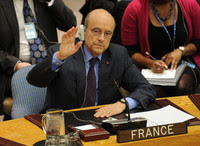
In 1979 a popular student uprising began in South Korea, which was then a US ally under dictatorial rule. The uprising was, with some degree of US collusion, brutally repressed by the South Korean military. The military leader of that repression started a party whose candidate later ran for and won the South Korean presidency in an election in 1987. Korea has since been described by the US CIA as a "fully functioning modern democracy" which is some term of art that I've only seen applied to South Korea itself.
As the mass and social media beamed the so-called “Arab Spring” around the world, analysts and pundits in the United States quickly began comparing the revolts to past uprisings, particularly those during the Cold War, which had shaken U.S. foreign policy. A favorite topic, particularly on Fox News, was Egypt’s purported similarity to the Iranian revolution of 1979, which toppled the pro-US Shah of Iran and eventually led to a Shiite Islamic state hostile to the United States. A few opportunistic neocon voices also compared the Obama administration’s public support for Mubarak’s opponents to Washington’s past actions to pressure Ferdinand Marcos and Suharto to end their dictatorial rule in the Philippines and Indonesia once popular uprisings had already sealed their fate.
But not a single analyst or journalist of note mentioned what remains one of the most significant rebellions against a US-backed tyrant of the past half-century: the student and worker uprising in South Korea in 1979 and 1980, which was mercilessly crushed by the Korean military with the US support. Korea didn’t even make the list of near-revolutions: in mid-February, PBS published a list of “30 Years of Uprisings” that had “brought down governments and transformed societies” or were either “dissipated” or “crushed.” The list included Iran, the Philippines, the Baltics, China’s Tiananmen Square, the 1997 Kosovo Rebellion against Serbia and the 1998 Bolivarian Revolution in Venezuela – but unaccountably skipped South Korea as well as Taiwan.
Egypt's recent announcement that, contrary to the March referendum, elections will be delayed beyond September brings to mind questions of whether Egypt's current US-sponsored dictator, Mohamed Tantawi, has plans or hopes of following a similar path.
Egypt's ruling Supreme Council of Armed Forces says it is delaying scheduled September elections until October or November, officials said.
Bikya Masr reported Thursday the military, which took power after the overthrow of former President Hosni Mubarak, still supports democracy and a transition to civilian rule, but the announced delay angered protesters gathered at Cairo's Tahrir Square where the movement to oust Mubarak began.
Colonialism and Americanism aside, I hope, for Tantawi's sake, that he does not intend to follow South Korea's Chun Doo Hwan. Dictator is not a good lifestyle compared to respectable military leader. There is an unnecessarily high chance that the endeavor would end very badly for Tantawi and his family, possibly much worse than its ending for Mubarak.





























